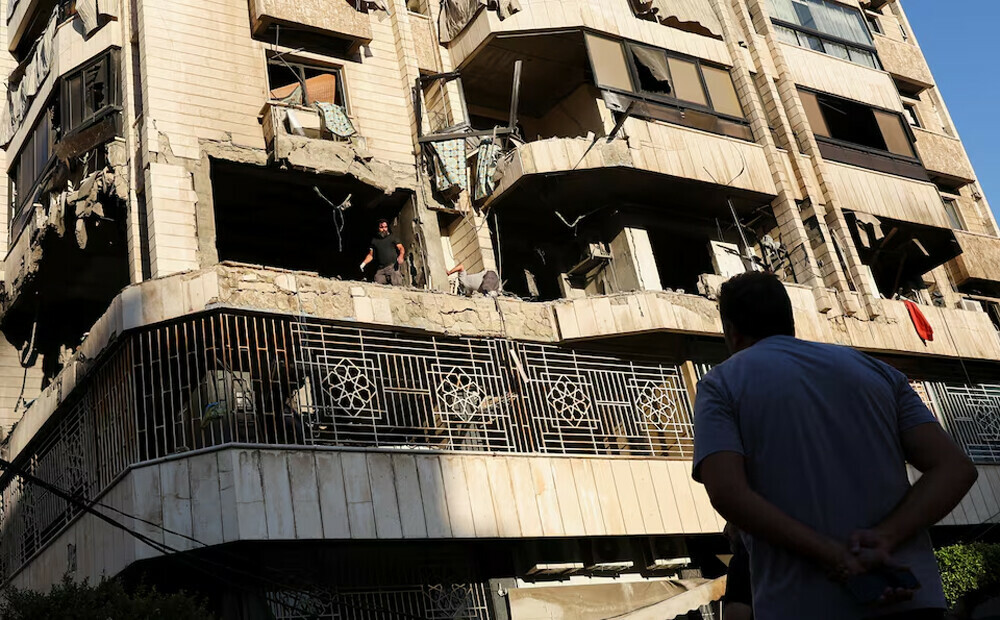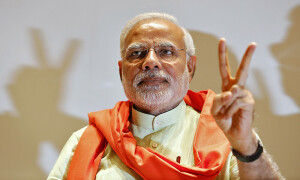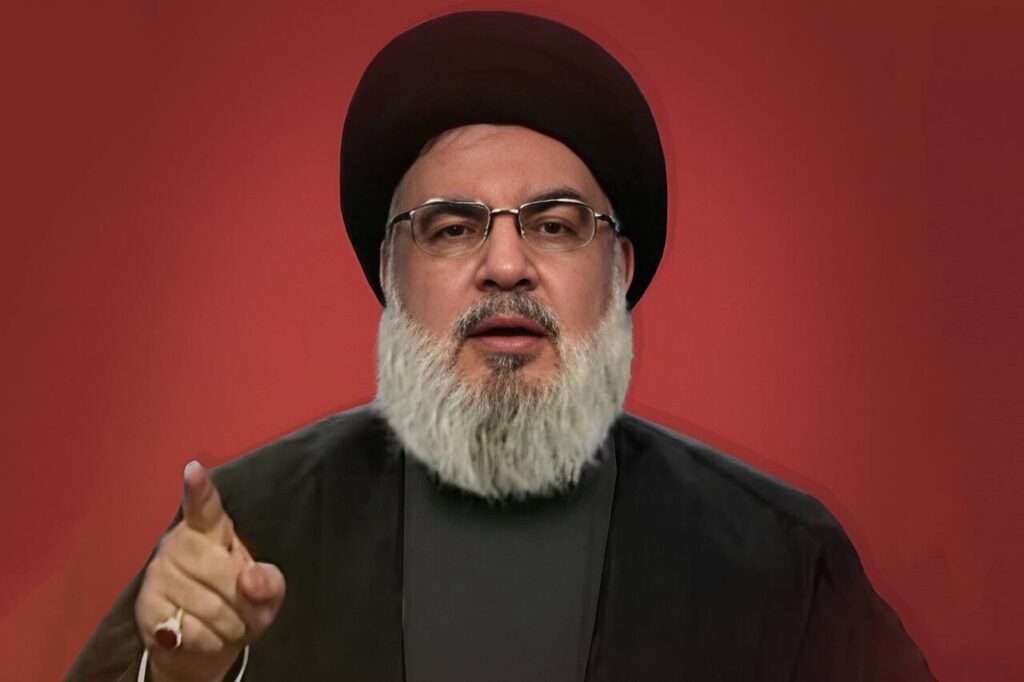Early Thursday morning, Israeli air forces launched targeted air strikes on central Beirut, killing at least six people and wounding several others. This marked one of the most significant escalations in a year-long series of clashes between Israel and Hezbollah, the Iran-backed militant group based in Lebanon. The Israeli government confirmed that the air strike was aimed at a building in the Bachoura district, a heavily populated area close to Lebanon’s parliament, marking the closest strike to Beirut’s central district in recent history.
The Strikes on Central Beirut: A New Phase of the Conflict
Witnesses in Beirut reported hearing a massive blast early in the morning, shaking the central district and causing widespread panic. Lebanese health officials later confirmed that six people had been killed, with seven more wounded in the attack. Images shared on social media depicted a heavily damaged building with its first floor ablaze. While Reuters could not immediately verify the authenticity of these images, the damage was extensive, leading to a rising death toll as rescue workers combed through the debris.
In addition to the central Beirut strikes, Israeli forces also launched missiles at the southern suburb of Dahiyeh. This area is a known stronghold of Hezbollah and was the location where Hezbollah’s leader, Hassan Nasrallah, was killed in an earlier Israeli attack. Loud explosions were heard throughout the city as the Israeli Defense Forces (IDF) continued their operations, targeting Hezbollah’s infrastructure and strategic positions.
The Israeli Response: Hezbollah’s Deadliest Day in a Year
The attacks come just after Israel suffered one of its deadliest days on the Lebanese front in over a year. Eight Israeli soldiers were killed in ground combat in southern Lebanon during clashes with Hezbollah fighters. The conflict has intensified following Iran’s largest-ever missile strike on Israel earlier in the week, signaling the growing involvement of regional powers in the ongoing violence.
Israeli Prime Minister Benjamin Netanyahu addressed the nation in a condolence video, stating, “We are at the height of a difficult war against Iran’s Axis of Evil, which wants to destroy us. This will not happen because we will stand together, and with God’s help, we will win together.”
The recent escalation, marked by air raids and ground operations, has raised concerns over a potential full-scale war between Israel and Hezbollah, which could have far-reaching consequences for the already volatile Middle East.
Iran’s Role in the Escalation: A Broader Regional Conflict
Iran, a key backer of Hezbollah, has played a significant role in the recent escalation. Just a day before the air strikes on Beirut, Iran launched over 180 missiles at Israel, marking its largest missile attack on the country to date. In response, Israel promised harsh retaliation, targeting Hezbollah positions across Lebanon and intensifying their military presence along the border.
Despite the massive missile volley, Iran declared that its attacks were over, barring further provocation. However, Israel and its ally, the United States, have vowed to respond to any future aggression with force. President Joe Biden, in a statement, urged Israel to act proportionally and refrained from supporting any Israeli strikes on Iran’s nuclear facilities, which would further escalate tensions across the region.
Iranian Supreme Leader Ayatollah Ali Khamenei dismissed claims that the killing of key commanders, including Hassan Nasrallah, would weaken Hezbollah. In a speech, Khamenei stated that Hezbollah remains strong and determined to continue its resistance against Israel.
Global Reactions: Calls for Diplomacy Amid Rising Tensions
The recent spike in violence has drawn international concern, with world leaders urging diplomacy as the only solution to prevent a full-scale regional conflict. The Group of Seven (G7) major powers held a virtual meeting, during which they expressed their concerns over the crisis in the Middle East. The leaders emphasized that a diplomatic solution remains viable and that a region-wide war would be detrimental to all parties involved.
In a statement, the G7 called for immediate de-escalation and urged both Israel and Hezbollah to engage in dialogue. China also expressed its concern, urging the United Nations Security Council to take immediate action to stabilize the situation. Fu Cong, China’s representative to the UN, emphasized the need for a return to political and diplomatic channels to resolve the conflict.
Despite these calls, the situation on the ground remains tense, with both Israel and Hezbollah continuing their military operations. Western nations have begun drafting contingency plans to evacuate their citizens from Lebanon, though a large-scale evacuation has not yet been initiated. Lebanese airports remain operational, but concerns over further Israeli strikes have prompted some countries to charter private planes to evacuate their nationals.
Hezbollah’s Resilience and Israel’s Military Strategy
Hezbollah, in response to the Israeli air strikes, declared that it successfully repelled Israeli forces near several border towns. The group’s media chief, Mohammad Afif, stated that Hezbollah’s military strength remained intact, and the battles near the border were just the “first round” in their ongoing resistance against Israeli forces.
Hezbollah claims to have destroyed three Israeli Merkava tanks near the town of Maroun El Ras, a border town that has seen heavy fighting in recent days. This marks the first time Hezbollah has reported direct ground clashes with Israeli forces since the latter crossed the border into southern Lebanon earlier this week.
Israel has deployed additional infantry and armored units to the region, signaling that its ground operations may expand beyond the current limited scope. The addition of forces from the 36th Division, including the Golani Brigade and the 188th Armored Brigade, suggests that Israel is preparing for a more prolonged and intense conflict with Hezbollah.
While the Israeli military has stated that its primary objective is to destroy Hezbollah’s infrastructure, including tunnels and weapons caches near the border, there is growing concern that the conflict could spread to other parts of Lebanon, including Beirut. Israel has issued new evacuation orders for residents in over two dozen border towns, advising them to move north of the Awali River.
The Humanitarian Crisis: Lebanon’s Struggle Amid the Conflict
The ongoing conflict between Israel and Hezbollah has taken a heavy toll on the civilian population of Lebanon. According to the Lebanese government, more than 1,900 people have been killed in the past year of fighting, with most of the casualties occurring in the past two weeks alone. Over 9,000 people have been wounded, and an estimated 1.2 million Lebanese have been displaced as a result of Israeli air strikes.
The humanitarian situation in Lebanon is dire, with many families forced to flee their homes and seek shelter in churches, schools, and other public buildings. Malika Joumaa, a resident of southern Lebanon, described how she and her family took refuge in a church after their home was destroyed by Israeli bombs. “It’s good that the church offered its help,” she said. “We were going to stay in the streets; where would we have gone?”
Despite the hardships, many Lebanese remain hopeful that a ceasefire between Israel and Hezbollah is still possible. Caretaker Prime Minister Najib Mikati has expressed optimism that a negotiated solution can be reached to end the violence and allow displaced families to return to their homes.
As the conflict between Israel and Hezbollah intensifies, the prospect of a wider regional war looms large. While both sides have suffered heavy losses, neither appears willing to back down, and the involvement of regional powers like Iran only adds fuel to the fire. The international community has called for restraint and diplomacy, but it remains to be seen whether these efforts will be enough to prevent further bloodshed in the Middle East. As Israel continues its air and ground operations, and Hezbollah remains defiant, the situation is likely to remain unstable in the coming weeks. For now, civilians on both sides of the border can only hope for an end to the violence and a return to peace.



